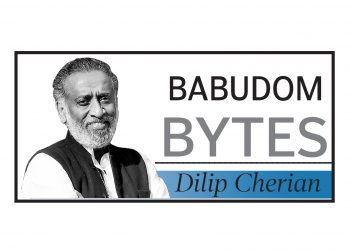Fifteen years after the Right to Information (RTI) Act came into force, does the nation have more transparency or less? The story is quite sombre. More than 2.2 lakh cases are pending at the Central and State Information Commissions. Nine out of 29 information commissions are functioning without a chief, one-fourth of information commissioner posts are vacant and the state commissions in Jharkhand and Tripura are defunct. No new commissioners have been appointed.
This apart, the Prime Minister’s Office (PMO) has “refused to disclose details on the PM CARES Fund, stating that the fund is “not a public authority” under the ambit of the RTI Act! The absence of a commissioner has serious ramifications for the effective functioning of the information commissions. But even the Central Information Commissioner, which hears second appeals against all central government departments and UTs, has been without a chief since August this year. Bimal Julka, who headed the CIC for barely six months, demitted office in August, upon reaching the age limit stipulated in the Act.
During the Covid pandemic, only 10 of the 28 information commissions worked and even these hardly heard any appeals.Yet, it is not just the transparency law that has suffered. There are other vacancies in key organisations that indicate a drift not usually associated with the Modi sarkar.
Sources say that the Public Enterprises Selection Board (PSEB) has been headless for more than a month after Rajiv Kumar, a former Finance Secretary, demitted office at the end of August and was appointed Election Commissioner in place of Ashok Lavasa. Similarly, the National Company Law Appellate Tribunal has been headless for more than seven months.
Apparently, as many as six ministries and departments are awaiting regular secretaries. Some estimate that dozens of board-level positions in several central PSUs are lying vacant with no sign of when these will be filled.
Better late than never
The 360-degree method of empanelment of officers has been a major administrative “reform” introduced by the Modi sarkar to judge the performance of officers. However, not all officials have been happy with it, since it allows retired officers to influence their careers. Many careers have been marred as a result, say sources. But that may have changed, with the Appointments Committee of the Cabinet (ACC) deciding not necessarily to act on the advice of the 360-degree committees, and even rejecting their recommendations as and when required. The case of UT cadre IAS officer G Narendra Kumar is often cited as an example of the subjectivity behind recommendations of these committees.
In September 2017, Kumar, who was posted in Puducherry, was booked by the CBI for alleged irregularities in admission to postgraduate medical courses in private colleges. Though the allegations turned out to be false, Kumar’s career was affected. It is only now that his name has finally been put on the list of the review empanelment order issued last month, after missing the opportunity for empanelment in 2018 due to the case against him.
The consensus among babus is that Kumar is among the best officials but suffers from his “disability” to network. Kumar had got caught in the political battle between the Chief Minister and then Lt Governor of Puducherry and paid a price. Some retired senior officers are said to have played a part in this episode and their advice proved costly to Kumar, in career terms.
The damage may have been done, but observers say that the government’s belated move does send out a message that fair dealings may be delayed for a while, but not forever.
RBI’s deputy governors
The recent appointment of RBI’s senior-most executive director M Rajeshwar Rao as the deputy governor of the bank has now led to a reallocation of portfolios of the four deputy governors. Rao replaced NS Vishwanathan who stepped down three months ahead of the end of his tenure on health grounds. Rao will oversee the Department of Regulations and also the departments of Communication, Enforcement, Inspection, Legal and Risk Monitoring. RBI’s other three deputy governors are BP Kanungo, MK Jain and Michael Debabrata Patra. While Patra will continue to look after the Monetary Policy department, Jain will be in charge of Central Security Cell, Corporate Strategy and Budget departments, while Kanungo will oversee Coordination, Currency Management and External Investments and Operations. In April this year, the government had extended Kanungo’s tenure by a year.
Deputy governors of RBI are initially appointed for a period of three years and can be reappointed.
Share a babu experience!
Follow dilipthecherian@twitter.com. Let’s multiply the effect.
